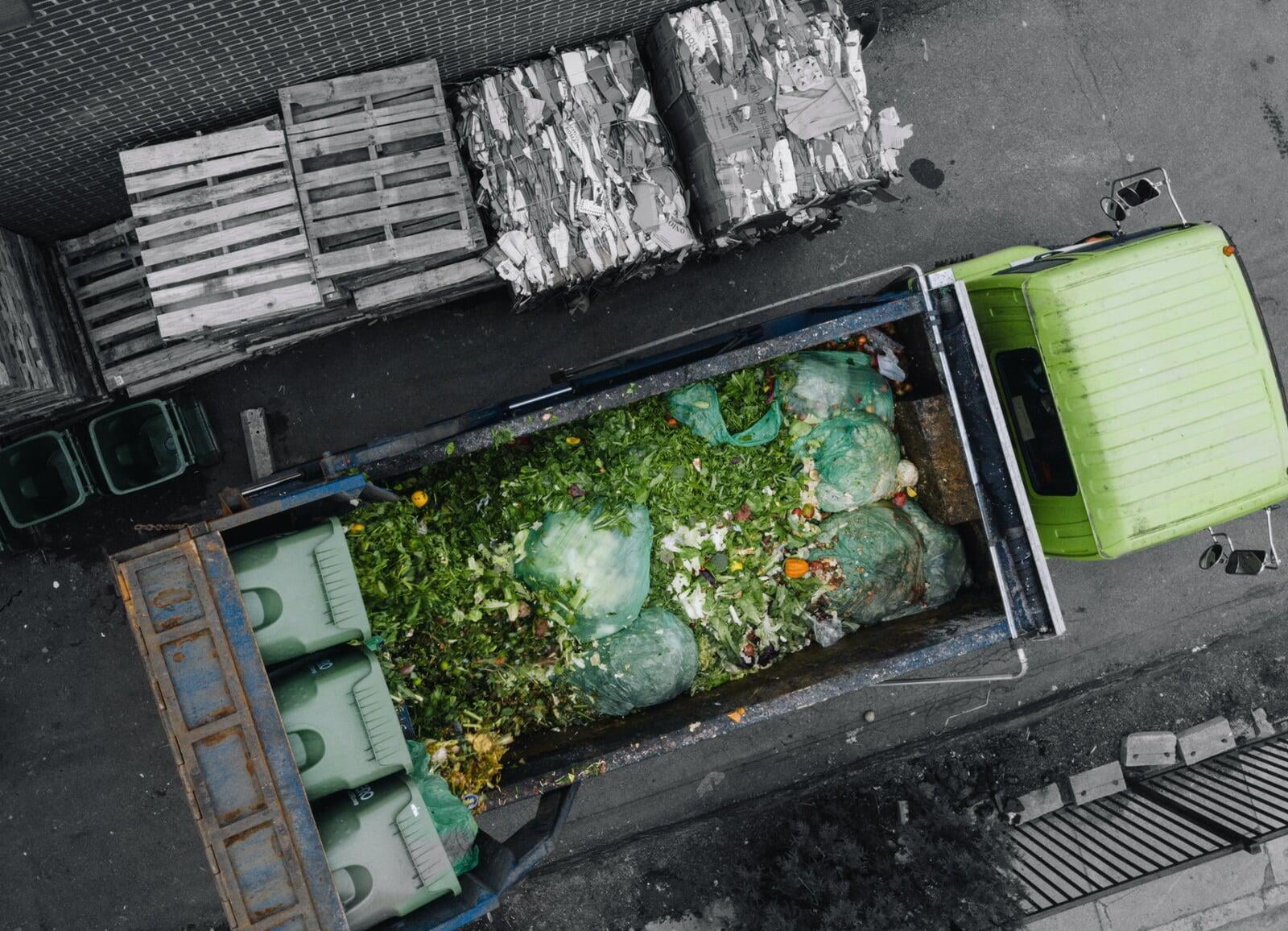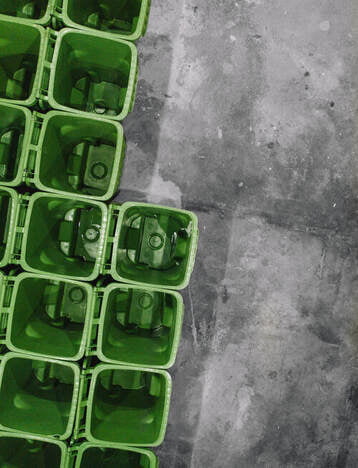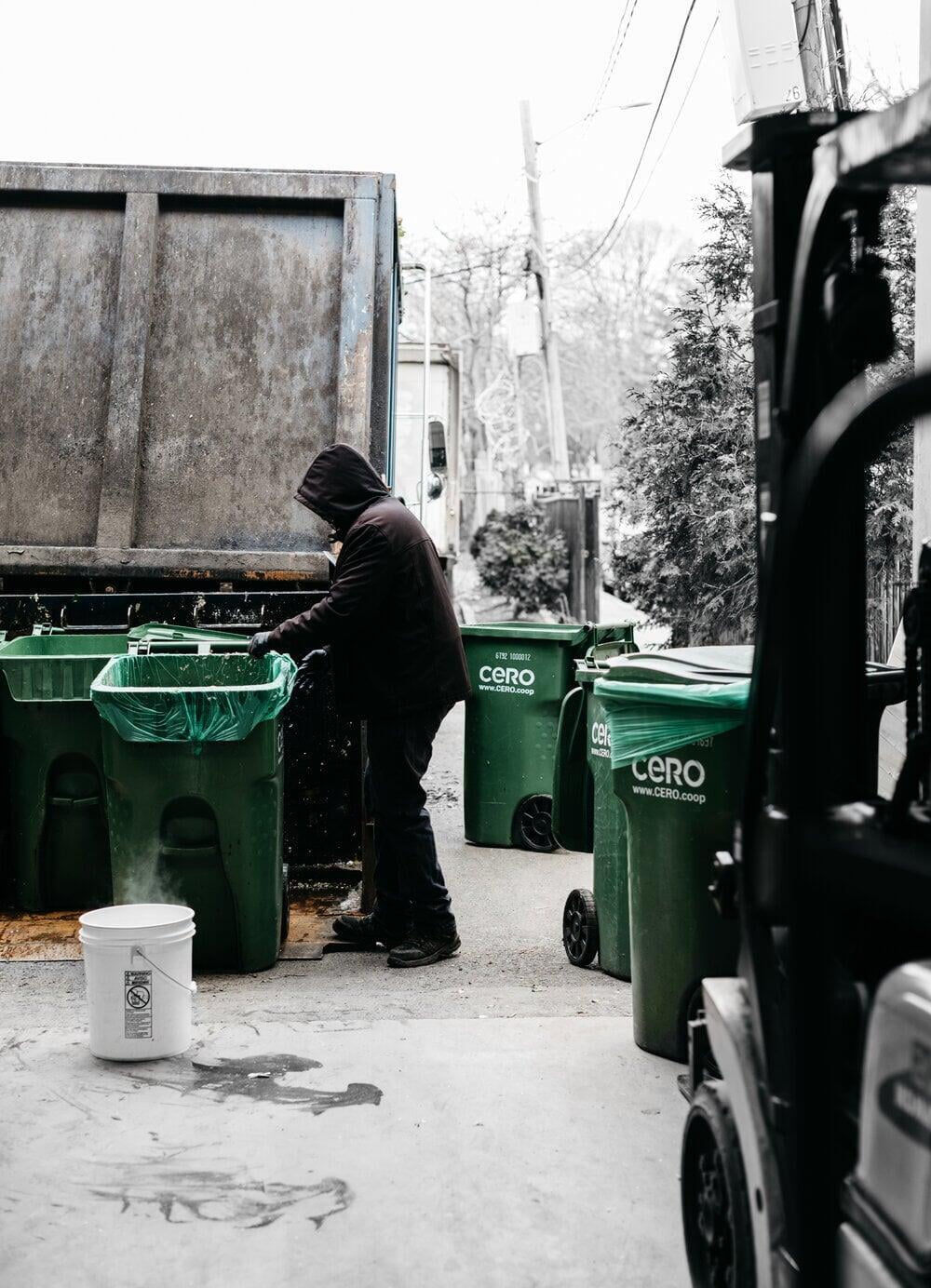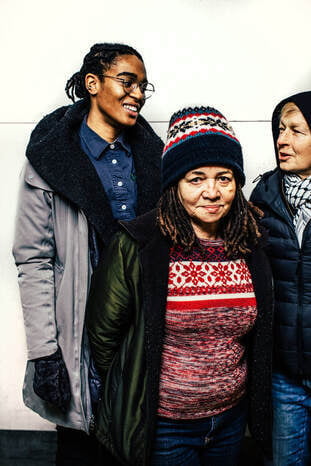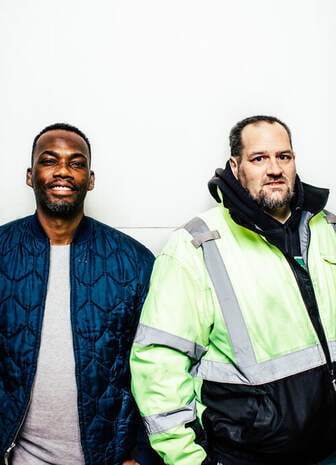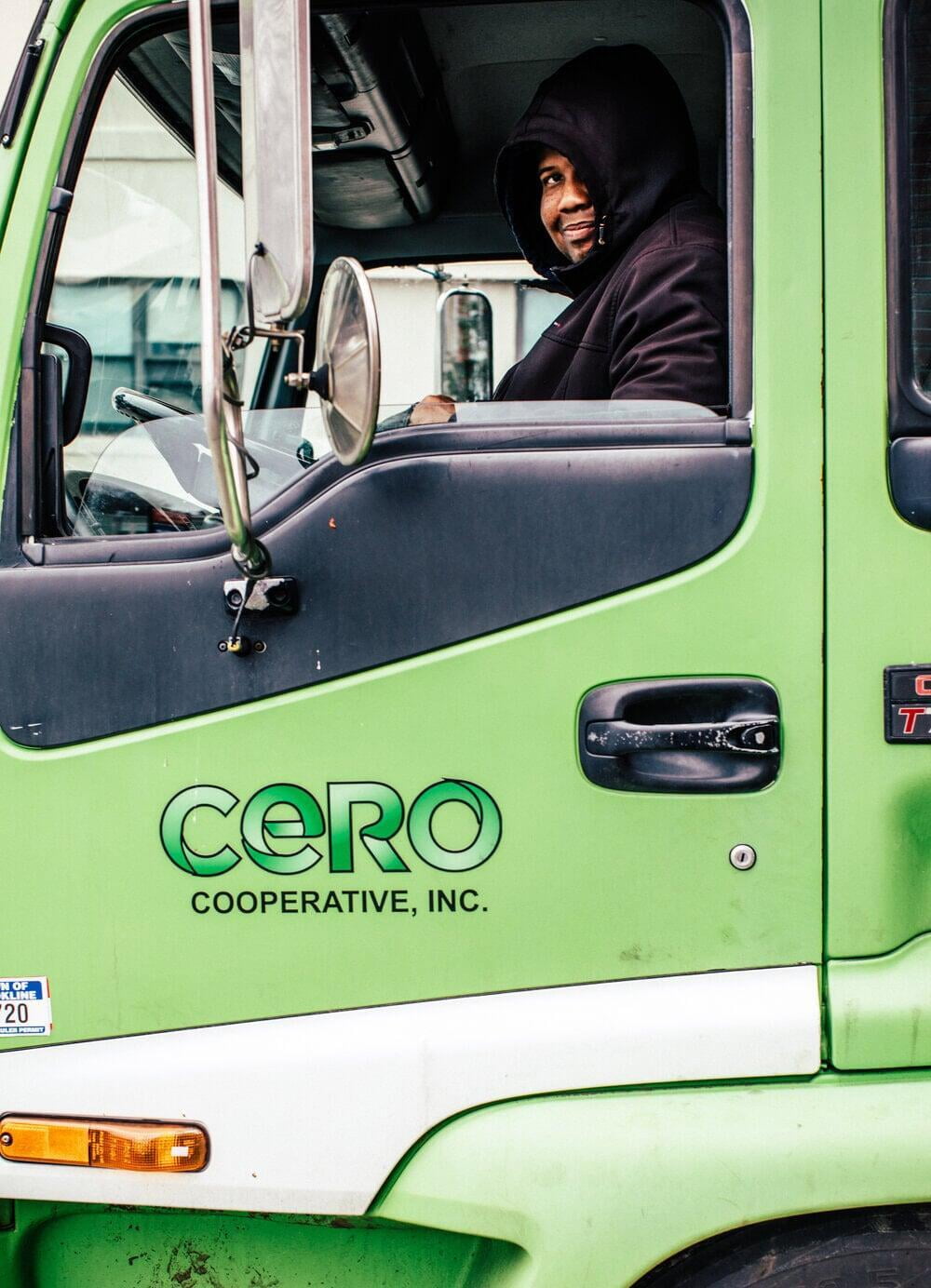Tucked into an annex next to a Southampton Street warehouse, workers at food composting cooperative CERO (for Cooperative Energy, Recycling and Organics) are firing up their own small fleet of trucks. They too will soon set out across the region, visiting many of those same businesses. CERO will be there to pick up the food waste that’s left behind—about 8 million pounds a year—and haul it to area farms where it will be turned into compost rather than rot in landfills.
“Every day we are here doing it, even Saturday,” says Josefina Luna, a worker-owner of the Dorchester-based company. Like everyone at CERO, Luna wears many hats. She is co-founder, the chief financial officer and chief operating officer. At 5:30 in the morning, she is also making sure everything is operating as it should be as drivers begin taking to their trucks.
“When we started, we had nothing. Today we have four vehicles and 13 employees who make a decent salary,” she says.
Working hard and creating good jobs for a diverse group of employees has been at the heart of CERO’s business from the beginning. As Luna tells it, the idea for CERO began years ago. The effects of the 2008 recession still lingered and unemployment in the Dorchester area was a problem. As a group of community leaders gathered to consider solutions, a need for jobs met the realization that food waste was not yet a big part of the growing, but still under-realized, green economy.
“So, they thought, ‘Well, why can’t we create jobs for ourselves and also help our community by being a champion for recycling?’” says CERO Sales Director Maya Gaul. A feasibility study showed there was indeed a market for commercial composting. That market received a big boost with implementation of a statewide food waste ban that required large producers of food waste to find alternatives to sending it to the landfill.
As the food waste ban took effect in 2014, CERO signed up its first customer: American Food Basket, a Latin American supermarket with multiple locations in and around Boston. They also put their first (and, for a time, only) truck on the road. Luna shows that truck as she gives a pre-dawn tour. It’s been joined by others: a small truck that handles food waste pickups in narrow New England streets and pair of larger trucks that can haul more than 14 tons at a time. The large trucks can handle up to 30 barrels of food waste collected by clients in green CERO-branded bins.
The composting company’s first customers were most interested in creating jobs and spurring economic development, Luna says. With education offered through CERO, they also strongly embraced the environmental benefits.
“But first was community,” Luna says.
Early supporters of CERO included nonprofits such as the food retailer Daily Table and the food business incubator Commonwealth Kitchen, both located in Dorchester. Today, CERO serves a diverse set of clients throughout the Boston metro area, from Wellesley to Westwood to Lawrence.
Sales director Gaul says that commercial grocery stores like American Food Basket and Wegmans were early to adopt composting for handling food waste as part of the 2014 ban, followed by microbreweries and large restaurants. Real estate companies that operate buildings where food service is part of the offering are a growing client group for CERO, as are large institutions like MIT and Northeastern University.
CERO’s single largest client is DiSilva Fruit, the biggest wholesaler and re-packager of citrus in New England. DiSilva sends upwards of eight tons of waste a week to CERO.
“They’re repackaging all of these potatoes and onions and lemons and limes and oranges, and sometimes some of them don’t come in well,” Gaul says.
Keeping things clean is one of the most important factors for many CERO clients, according to Gaul. Unlike dumpsters that mix food and other waste, CERO’s bins are regularly cleaned, which clients see as added value. Dozens of collection bins at CERO’s warehouse attest to a commitment to cleanliness. Bins are returned periodically to the warehouse for a thorough cleaning. As Luna gives her tour, she notes that each truck includes water hoses that allow CERO drivers to clean bins on-site.
Client pickups can happen as often as three times a week, or just once, as at Home.stead Café, a client located in the same Fields Corner building as CERO’s administrative office. Home.stead produces two barrels of compost— mostly coffee grounds and waste from food prep—and just one barrel of trash each week.
Their waste falls below the threshold required under the food waste ban, but Home.stead co-owner Vivian Girard says reducing waste and composting are important to him and his wife/business partner, Elisa, who live also in the historic Dorchester neighborhood.
“We’re small, but it’s a meaningful amount,” Girard says.
“Spaces like this are really important,” Gaul notes. “Your staff is directly participating in this culture.”
“We’re trying to think a little beyond the cash register,” Girard adds.
Gaul hopes that a wider swath of businesses will come to share this commitment to the environment and thinking about the future.
“I want to popularize sustainability. I want to popularize recycling,” she says.
There are signs that word is getting out. Gaul notes that when she joined CERO in 2015, only a few potential clients contacted her via the website. Most of her work was reaching out to companies to make them aware of the advantages of using a composting service. (The advantages are both environmental and financial. Composting services generally cost less than sending waste to the landfill.) Now, as many as 10 businesses a week contact CERO to find out about composting.
“I think it has to do with the attention that climate change is getting right now as a topic. People are realizing how much our world is changing,” Gaul says.
A desire to help make change happen and be part of something bigger is what brought Gaul to CERO from her previous job at WGBH. Gaul grew up in Egleston Square and wanted to return to Boston after graduating from college. She was working on public relations for a documentary on the Civil Rights movement when she realized that she wanted to be part of making change, not writing about it.
“I thought, ‘Maybe there’s something I can be doing that’s more pressing to frontline issues,’” Gaul remembers. In 2015, a business acquaintance introduced Gaul to Luna. CERO was looking for someone to head up sales and join the co-op as an owner-worker. Gaul decided it was just the sort of frontline opportunity she was looking for. Soon she found herself a part of a small organization with a big mandate. Under CERO’s unique co-op structure, she learned what it meant to be both an owner and worker.
“When I first started, we were so strapped that I was on the trucks. I was cleaning the totes. I was doing all that, and just the act of it was very humbling. But also, I realized what goes into the operations here, how much care we put into it, how much thought goes into that. I think a lot of our clients, they put that same level of detail and care into their own operations,” Gaul says.
Gaul and Luna are among the three current employee-owners of the firm. There are also two emeritus owners and three people on track to become owners. Employees from throughout the company are able to move into an owner track in the small, tight-knit organization.
“We’re not just a business and we’re not a family, but we’re a cooperative business. And that’s very interesting, but also very challenging,” Gaul says. She notes that taking on the challenges of running a business doesn’t appeal to everyone. Some workers decide to move on rather than pursuing ownership. According to Gaul, everyone at the company—owner or not—is paid the same modest salary. She has heard back from some colleagues who have moved on to other jobs saying, “Oh, I didn’t understand the culture of dignity here.”
With its recycling business established and growing, CERO has set its sights next on something bigger: a cooperatively owned facility that generates green energy in Boston. CERO recently submitted a proposal to the Commonwealth to develop the former Boston State Hospital parcel as an anaerobic digester that will convert food into renewable energy in the form of natural gas and electricity. CERO’s proposal is one of several now being considered by the state.
Gaul sees a highly visible green project like this as one more step on the way to meaningful changes in the community, and beyond. “To me it’s like an echo of the soul. You see these things and you say, ‘This is what I should be doing.’”
This story appeared in the Winter 2020 issue.
Michael Floreak is a food writer who lives and often eats in Cambridge. His interviews with authors, chefs, writers, food policy experts and other characters from the food world have appeared regularly in the Boston Globe and To Market magazine. Michael holds a Master of Arts in Professional Writing from Carnegie Mellon University and recently completed a Master’s of Liberal Arts in Gastronomy from Boston University. In addition to writing about food, Michael works as a brand strategist and writer. You reach him by email at Michael.Floreak@gmail.com or follow on Twitter: @floreak.

